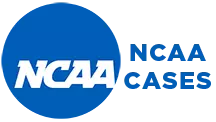All-American Flashback: Lauren Parker (2007-09)
12/14/2015 12:00:00 AM | Softball
In honor of Alabama softball's 20th anniversary, rolltide.com will be catching up with our 20 former All-Americans in a series of feature interviews. Our 11th feature is with Lauren Parker (2007-09), who made an immediate impact after transferring from Baylor with an All-American sophomore season at Alabama.
When the graduating class of 2009 arrived in Tuscaloosa in the fall of 2005, the group already featured a pair of future All-Americans in Brittany Rogers and Kelley Montalvo. One season later, Alabama added another to the group with Lauren Parker, who transferred from Baylor as a sophomore. Parker, now Lauren Sanders, wasn't aware of Alabama when she started her softball career in her hometown of Orange, Texas.
"Playing softball in college wasn't something that was in my mind growing up," Sanders said. "I played it because I loved it. It was something that was in my blood. I started going to Baylor camps when I was in middle school and I would try to go to ones at Texas and Texas A&M but I was never lucky enough to sign up on time. I loved Baylor and the program there and that's where I started my career before coming to Alabama. It was really limited to those three colleges because that's all I ever knew growing up."
Geography wasn't the biggest limiting factor in Sanders' development as a player however. She grew up partially deaf, making the quick reactions necessary as an infielder that much more difficult. By her own admission, she had never even heard the sound of a ball pinging off a bat until attaining new hearing aids during her time at Alabama.
"Other players take that kind of stuff for granted," Sanders said about learning the sport with a disability. "I spent a lot of time with my teammates growing up getting to know their voices and spending time with them and knowing their personalities. We practiced a lot together learning how to deal with it. It wasn't just a challenge to me, it was a challenge to my teammates as well. They would call for a ball and we would collide because I didn't hear them. They would get frustrated with me and I would get frustrated with them. It was a barrier that we had to work through but my teammates and coaches were always very accepting.
"I learned from a young age that it wasn't an excuse. It was something that was going to make me better. I had to rely a lot on sight growing up and I think that's what made me better. I really had to focus on what I was doing. People think it's a disability but I look at it as a blessing. For me it was a chance to expand my ability. I never saw it as a disability and my coaches and parents never allowed it to be one. I am thankful for that now, even if I didn't understand it growing up."
After one season at Baylor, Sanders looked for other college opportunities across the country. She cast a wide net but eventually narrowed it down to the two biggest schools in the state of Alabama.
"Out of high school, I wasn't really recruited," Sanders said. "After my freshman year at Baylor, I thought I would email every school I possibly could after I got my release. I set up some visits and made trips to watch some games on my own. It happened to be that Alabama was looking for a power lefty. I always laugh at that because I was never really a 'power' hitter before that. I would just put the ball in play. It came down to Auburn and Alabama and it just so happened that Alabama took a chance on me."
Sanders arrived in Tuscaloosa alongside a sophomore class consisting of standouts Kellie Eubanks, Ashley Holcombe, Kelley Montalvo and Brittany Rogers. Sanders found herself welcomed from the start.
"I was really nervous before I came to Alabama," Sanders said. "I was moving nine hours away from home to a place where I didn't know anybody. The class I graduated with was phenomenal. They weren't just a good group of softball players, they were even better people. Those are people that I still hold dear to me today. I thought it was going to be a challenge going in but it really wasn't. They accepted me from day one. I knew it was their team. They invited me here and I had to do whatever I could to give back 100% every day.
"It was awesome because my roommate was Brittany Rogers. You're not going to find a better athlete or person than her. Being her roommate really helped me a lot. Our team chemistry was great. That's what made us such a great team the three years I was there. The coaches always said, 'the sooner you learn it's not all about you, the better this team will be' and that was the mentality we all had. I came in at the right time with a great group of teammates."
Sanders wasted no time repaying Alabama's good faith, earning All-American honors in her 2007 debut season in Tuscaloosa. She hit .457 with nine home runs and 45 RBIs. At the time, the .457 clip was the second-highest in program history, trailing only Kelly Kretschman's .467 average from her 1998 freshman season.
"[Pat] Murphy is a phenomenal coach," Sanders said on the secret to her success. "He really gets you to believe in yourself more than you ever thought possible. My freshman year at Baylor, I hit in the .200's and never hit a home run. As soon as I got to Alabama, Murphy instilled something in me that was unexplainable. That's what makes him such a great coach. I had more confidence when I played for him then I ever had in my entire life. Murphy treats you like you're his own kid. He takes an interest in you in building you up as a person as well as a softball player.
"I came into Alabama hurt so I didn't really get to practice in the fall my first year there. The next semester at practice right before the season started, Murph and I were on the field and I looked at him and told him, 'I want to be the best hitter in the SEC.' He looked at me and laughed a little bit but then he told me, 'I'm not laughing at your goal, I'm laughing because I want you to be the best hitter in the country.' That was a turning point for me. He believed in me, took a chance on me and I was going to do whatever I could to repay him. When he had enough confidence in a kid he barely knew with a disability, it was a huge turning point in my life and in my career."
After her 2007 All-American season, Sanders continued to be productive for two more seasons but fell victim to the injury bug throughout her time at Alabama, limiting her role on the field. Needing to find a way to make a positive contribution off the field, Sanders had to look no further than teammate Jessica "Mad Dawg" Smith for inspiration. Crimson Tide fans will recognize Smith as the first face on the outfield wall at Rhoads Stadium, which is chock full of All-Americans and record-setters from throughout Alabama history. While Smith never received All-America honors or set any records at Alabama, her legacy was equally as impactful.
"The best example of knowing your role when I was there was Jessica Smith," Sanders said. "She did more for our team than anybody probably even realized. She and I were both hurt so we spent a lot of time together. She knew everything there was to know about every team we played. She knew signals, defensive and offensive strategies, everything. I really tried to feed off of her."
Smith became the team's secret weapon in the dugout. Hiding just out of sight from opposing coaches, she would meticulously study every move of the opposing dugout, the catcher, pitchers and infielders looking for any tipoff for what might be coming. A sharp mind and meticulous study eventually produced an invaluable three-ring binder full of information that allowed the Tide to know its opponent's moves before they were even made.
"I was one of the quieter ones who didn't share a lot," Sanders said, "but it was important to me that I learn and absorb all that information from Jess so that if I was called to pinch hit or something like that, I knew what was going on with the pitchers. I was constantly talking with people like Charlotte Morgan and Brittany Rogers trying to help them out and let them know what I was also seeing from the dugout. I wanted to give them as much positive motivation as I could. It was frustrating not being able to play but I learned more from watching than I did playing, so it was really a blessing in disguise."
Sanders continues to pass on the lessons of selflessness and appreciation she learned at Alabama in her current role as a teacher and a coach.
"Going to Alabama was the best thing that ever happened to me. I grew up and matured a lot. I learned a lot about respecting others. I can't tell you how many thank you notes I've written. It wasn't because it was expected of us, it was because we were really appreciative for our fans, family and friends. I'm a teacher and a coach now and I preach to my kids that these kinds of things will get you further in life than anything. Just saying a simple 'thank you' goes a long way.
"We got renovations done at the softball field at the high school I worked at and one of my kids asked me if they could write a thank you note to our superintendent. That was my first year of coaching and that really touched me. My kids understand those values and Murph always tried to instill those in us. I'm still trying to continually do that and prepare my high school kids for what they'll face once they graduate. To me, it's more than just softball and that's what Murph always emphasized to us. Here we all are years later and we're still a part of the Alabama family. I'm very appreciative for what he did for me and my family when I was at Alabama."
Lauren and her husband, Jason Sanders, live in Silsbee, Texas and Lauren is a teacher and coach at nearby Lumberton High School. They have an 18-month-old son Callen and are expecting another boy in March.








